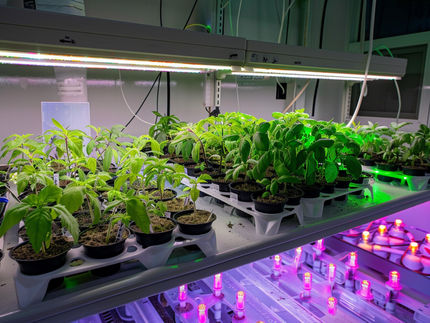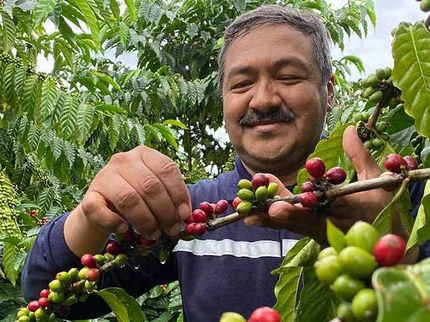Pernod Ricard accelerates the end of single-use plastic point-of-sale (POS) materials by 2021
2030 Sustainability & Responsibility roadmap
Pernod Ricard accelerates the end of single-use plastic point-of-sale (POS) materials by 2021, one of the commitments of its “2030 sustainability & Responsibility roadmap - Good Times from Good Place”.

Adobe | Ralph Schwägerl
Pernod Ricard is proud to announce that it will end the use of single-use plastic point-of-sale (POS) items1 by 2021. Alongside other strong commitments* to be achieved this decade, this plastic ban is one of the milestones of the Group’s “2030 Sustainability & Responsibility roadmap - Good Times from a Good Place,” part of its strategic plan Transform & Accelerate. The ban, originally planned for 2025, will be achieved four years ahead of the initial target.
In order to drive innovation and provide guidance throughout the Group, Pernod Ricard has shared Global Sustainable POS Guidelines with its 90 affiliates. The guidelines specify which materials can no longer be used and how they can be replaced. They are based on five R’s - Rethink, Reduce, Reuse, Recycle and Respect - and respond to consumers’ increasing desire for less waste and concrete actions to reduce environmental impacts from their favorite brands.
This decisive step echoes the call to action in the context of COVID-19 pandemic recently co-signed by Pernod Ricard’s Chairman & CEO, Alexandre Ricard, in the French newspaper Le Monde to “adopt deeper transformations in our ways of producing and changes in our behaviours and consumption habits” leading to “a new relationship with nature.”
As part of today’s announcement, Alexandre Ricard added, “For the past two years we have been striving to accelerate every aspect of our business, and the current crisis must not be a threat but rather an opportunity to speed up the implementation of our Sustainability & Responsibility roadmap.”
“The end of single-use plastic POS items is one of the many ways we will do our share to bring positive change to the world we live in, and achieving this goal four years ahead of schedule underlines our employees’ commitment to do so.”
Thanks to Pernod Ricard’s extensive global footprint and the strength of its distribution network, its brands are distributed by a wide variety of off-trade distributors, including in geographies with waste management challenges. This announcement therefore represents a huge step to drastically reduce the use of single-use plastic on a global scale, reinforcing the Group’s commitment to the Ellen MacArthur Foundation’s New Plastics Economy.
In early 2018 Pernod Ricard banned plastic straws and stirrers at all its events, and as part of its 2030 Sustainability & Responsibility roadmap, the Group has also committed to 100% reusable, recyclable or compostable POS items by 2030.
*As part of its 2030 Sustainability & Responsibility roadmap the Group has also committed to the following environmental goals:
- being water balanced in all high-risk watersheds, replenishing 100% of water consumption from production sites (by 2030)
- reducing the intensity of its carbon footprint by 50%, in line with the Science-Based Targets (SBTs) initiative (2030)
- developing regenerative agriculture pilot schemes within its owned vineyards in 8 wine regions to mimic natural processes to improve the quality of topsoil, watersheds and ecosystems (2025). The Group will then partner with over 5,000 farmers to further share this knowledge (2030)
- defining a strategic project to address the most pressing local biodiversity issues in 100% of the Group’s global affiliates (2030)
Details on Pernod Ricard’s “2030 Sustainability & Responsibility roadmap - Good Times from a Good Place” can be found here: https://www.pernod-ricard.com/en/our-commitments/our-model-our-4-commitments/
In terms of innovation for the end consumer, the Group’s environmental strategy has recently been applied with the launch in France of the first organic (agriculture biologique) Ricard products: Ricard Green Anis & Almonds and Ricard Green Anis & Lemon.
____
1. Excluding tasting cups
Most read news
Topics
Organizations
Other news from the department business & finance

Get the food & beverage industry in your inbox
By submitting this form you agree that LUMITOS AG will send you the newsletter(s) selected above by email. Your data will not be passed on to third parties. Your data will be stored and processed in accordance with our data protection regulations. LUMITOS may contact you by email for the purpose of advertising or market and opinion surveys. You can revoke your consent at any time without giving reasons to LUMITOS AG, Ernst-Augustin-Str. 2, 12489 Berlin, Germany or by e-mail at revoke@lumitos.com with effect for the future. In addition, each email contains a link to unsubscribe from the corresponding newsletter.
Most read news
More news from our other portals
Last viewed contents

Veganuary sales boom with new plant-based meal deal as demand for no and low alcohol also rises
VDMA (Germany): Slight increase in exports of food processing and packaging machinery expected in 2015

McDonald’s Appoints Jill McDonald as Executive Vice President and President, International Operated Markets































































